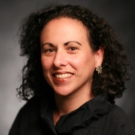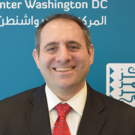Speakers

Debra Shushan
Director of Policy and Government Relations
Americans for Peace Now

Raef Zreik
Academic Co-Director, Minerva Humanities Center
Tel Aviv University
Moderator
Event Summary
Arab Center Washington DC (ACW) hosted a panel discussion on February 6, 2019 at the National Press Club titled “Israeli Elections 2019: Domestic, Regional, and International Implications.” The speakers were Yousef Munayyer, a nonresident fellow at ACW and executive director of the US Campaign for Palestinian Rights; Debra Shushan, director of policy and government relations at Americans for Peace Now; and Raef Zreik, academic co-director of the Minerva Humanities Center at Tel Aviv University and a visiting professor at Georgetown University’s Law School. Khalil Jahshan, ACW’s executive director, moderated the panel.
To contextualize and introduce the event, Khalil Jahshan said that on December 26, 2018, Israel’s Knesset announced that elections would take place on April 9, 2019 for the 21st Knesset. At present, Benjamin Netanyahu is the leading candidate in the race; if he wins it would be his fifth term as prime minister. Jahshan characterized Israeli elections as routinely intense and heated, and that the upcoming one will be no exception. He outlined four basic trends to watch for. First is the investigation of Netanyahu, who will likely be indicted a month before elections. How would this impact his electability? Second, Netanyahu’s moniker as “Mr. Security” is now being challenged, as the issue of security is driving the other candidates to compete in the level of hate they spew against Palestinians. Third, this time there is a slight difference between the Likud Party and its leader, as the party is more stable and popular than Netanyahu himself. Lastly, Netanyahu, like US President Donald Trump, gripes that he is being persecuted unfairly and that the elections are rigged against him.
Yousef Munayyer opened his remarks by saying that the problem in the discourse about Israel’s elections is that it ignores millions of Palestinians in the West Bank and Gaza. They will be significantly affected by the elections without participating in them. Indeed, only considering Israel within the green line while separating out the West Bank and Gaza—as if there is a viable government there that can govern effectively—is a huge gap in the elections discourse, he said.
Munayyer emphasized Netanyahu’s dominance in Israeli politics, saying that most of the candidates in the elections owe their careers in one way or another to the prime minister; they have been forced to respond to him and his framing of the political situation. Therefore, they have to compete with him regarding handling the country’s security—they “have to out-security Mr. Security,” Munayyer said. One salient example is the Israel Resilience Party and its candidate, Israeli General Benny Gantz, who is “dressing his campaign in military fatigues” as the military is the only unifying institution in Israeli society, Munayyer argued. Further, even if Netanyahu manages to lose the election, he said, the prime minister’s ideas will still permeate the winner’s political views. Concluding this line of reasoning, Munayyer said: “Netanyahuism has won in Israel.”
As for the Joint Arab List, it is in a difficult position according to Munayyer. Different Arab parties have had to unite, despite their differences, to have any influence in the legislative elections because if separated, they would have no seats in the Knesset. He explained that party activists are increasingly questioning this strategy. In the end, he said, the Joint List has an outsize impact on the outcome of the elections since the List may garner 10 of the 120 members, so those seats make a difference in the fragmented political field.
Debra Shushan focused on civil liberties in Israel, noting that elections are “the best and worst of what Israel stands for.” She said that candidates’ racist campaign ads “fan bigotry not only against Palestinians but also against the left … and the media as well,” with trends that are profoundly disturbing. Shushan analyzed the rating that Israel received regarding its democratic practices from Freedom House and the Economist Intelligence Unit (EIU) Democracy Index, saying that it is a conundrum to look at Israel’s democracy while the country practices a military occupation over Palestinians. Nevertheless, she asserted that there is utility in looking at Israel as it functions within the green line.
Shushan said the EIU labels Israel as a “flawed democracy.” Although it ranked highly in terms of political participation and electoral processes and pluralism, Israel has a much lower rating in the functioning of the government and democratic political culture, and a poor rating in civil liberties. The Freedom House report also indicated a decline in the past two years in political rights and civil liberties as the Israeli government tightens restrictions on NGOs, minorities, civil society, and the left. Shushan noted that it is important to consider the personalization of politics in Israel and the decline of political parties, which do not have much trust among Israelis. She said that in addition to security, the important goal of peace should be on the ballot. She also explained that Israel’s move toward illiberal populism is part of a worldwide trend. It is possible to see change in the post-Netanyahu era, Shushan argued, despite Netanyahu’s serious influence on the political landscape, saying that “Netanyahuism is not here forever.” In addition, she affirmed that Israeli Jewish society and diaspora Jewry have an important role to play in the post-Netanyahu change.
Raef Zreik said that chances are that Netanyahu will be indicted and reelected, after which the prime minister would argue that Israeli citizens, because they reelected him, are basically serving as the jury in his corruption trial. Zreik said that such a scenario would pose a real challenge for the Israeli legal system; whether Netanyahu or the legal system wins, Israel as a country would emerge as different than before the elections. As for the issue of Palestine, it is simply not on the domestic agenda, he asserted.
Regarding war and peace issues, Zreik concurred that not much change is anticipated in Israeli policy. Where change could unfold, he continued, is with two actors: the White House and the Palestinians. If the Palestinians change their paradigm—that is, the Palestinian Authority “would have to disappear”—this would force Israel’s political agenda. Zreik noted that the recent Nation State Law was passed by a slim margin in the Knesset (62 to 56 votes) and that this law has received much debate, saying that it must be analyzed on the ideological level. He said that early on Zionism was a Jewish national movement for the Jewish people and that “the story of Zionism is a story of separatism from the start.” What is new about this law is that it has placed organizing principles in the constitution that enshrine this separateness.
Zreik cautioned about three additional aspects of the law. First, it is different to speak about separation in 1948––when the Israeli state was established––and now, when Palestinians—whom Israel tried to eliminate—are citizens of Israel. Although they are second-class citizens, the overall context is shared citizenship, a “separation within unity.” Second, the Nation State Law says nothing about the borders of the state of Israel, which denies the Palestinian right to self determination in the occupied territories, thus closing the door to any compromise with the Palestinians. Third, the policies of the recent Israeli government and its fierce attack on Israeli institutions indicate that “the revolution” against legality is not over. There is distrust, Zreik asserted, in the legal system, in journalism, and in academic and all other institutions, and this is something new and really dangerous. He concluded his remarks with the example of the assassination of Prime Minister Yitzhak Rabin in 1995, which he characterized as basically a declaration “that the revolution is never over.” He said it was like the Oedipus complex revisited, as if it were changed into one where it is the father who wants to kill the son.
Event Photos


